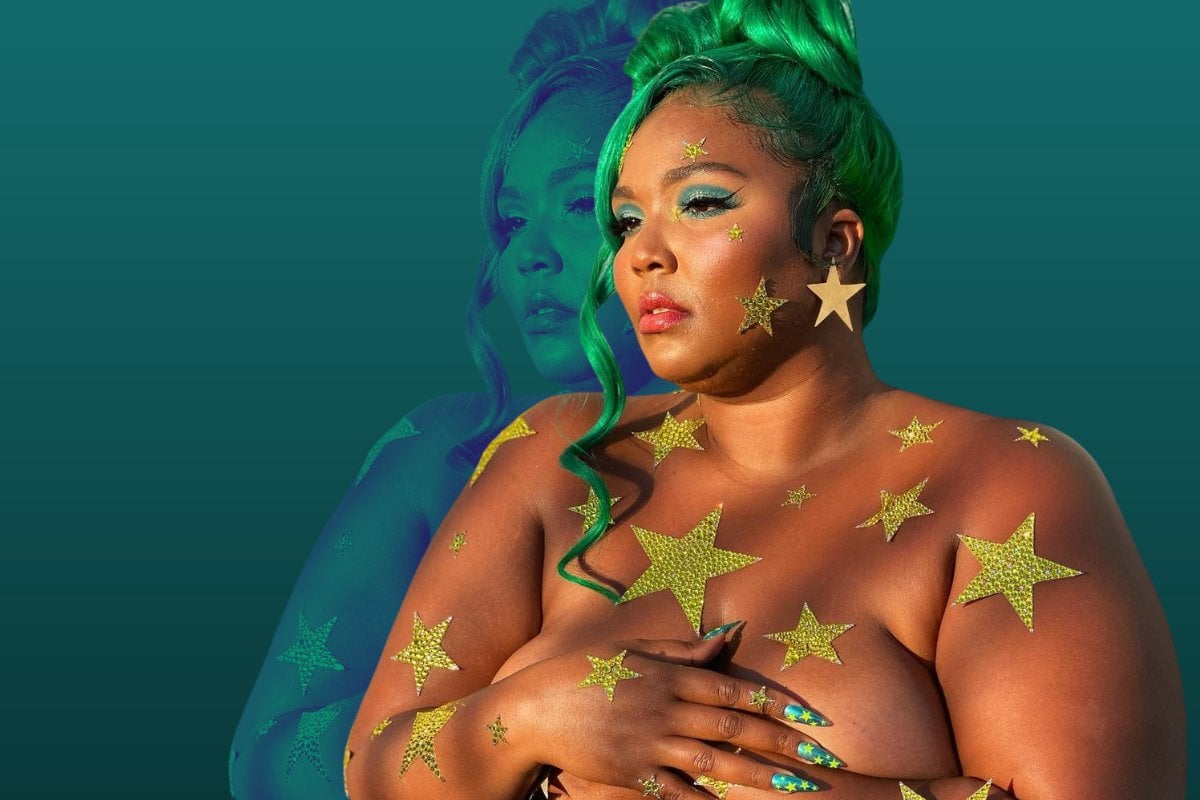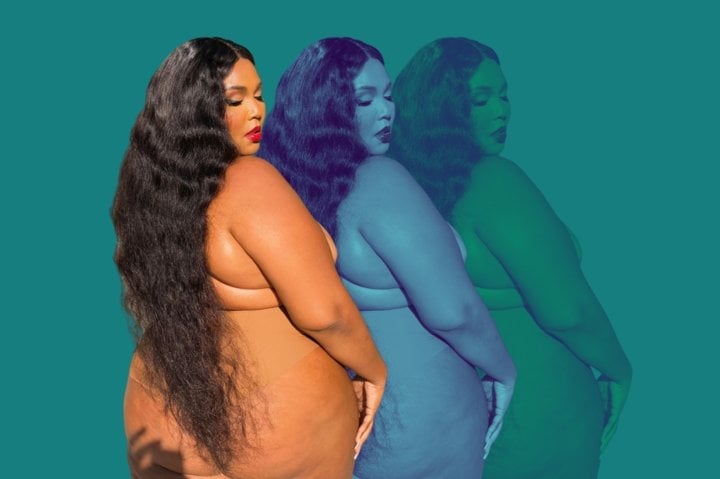
This post deals with eating disorders and might be triggering for some readers.
To most of the world, award-winning, chart-topping musician Lizzo has ceased to be a person.
When looked at through a pop culture lens we've labelled her with literally everything. From a musical genius to a breaker of barriers, a body image warrior and, in the more extreme cases, our saviour.
The fact that these titles are ones she never asked for make that crown we've placed atop her head all the heavier.
This week, the Grammy-winning musician posted two reels to her Instagram account documenting her experience taking part in a 10-day smoothie diet detox.
Lizzo noted that she was undertaking the detox under the care of a nutritionist and said of her decision "I drank a lot, I ate a lot of spicy things and things that f**ked my stomach up, and I wanted to reverse it and get back to where I was".
The videos immediately triggered an avalanche of news headlines, comments and conversations alleging that Lizzo was promoting diet culture and disordered eating.
Basically, the conclusion was that she had let us all down.
Listen to The Spill hosts explain the real discomfort behind the Lizzo conversation. Post continues after podcast.
Lizzo then addressed the conversation in an Instagram post where she urged her followers to not starve themselves.
"I detoxed my body and I’m still fat," she wrote. "I love my body and I’m still fat. I’m beautiful and I’m still fat. These things are not mutually exclusive.


Top Comments